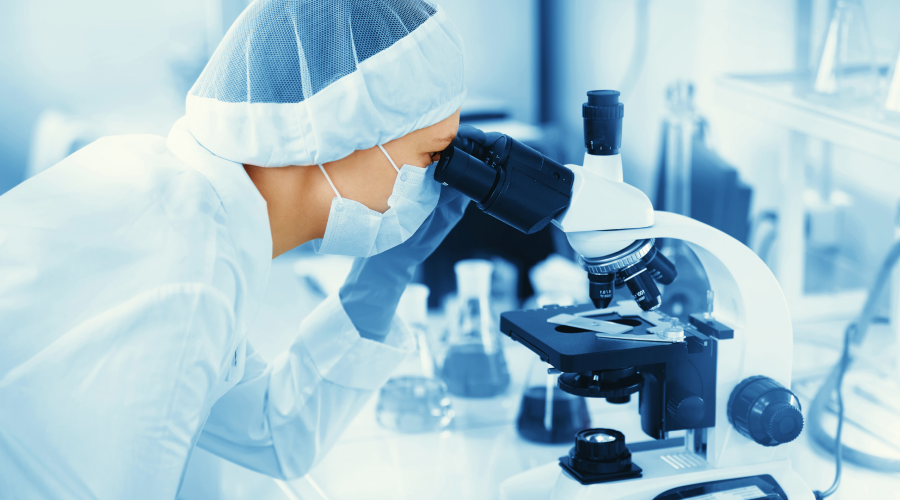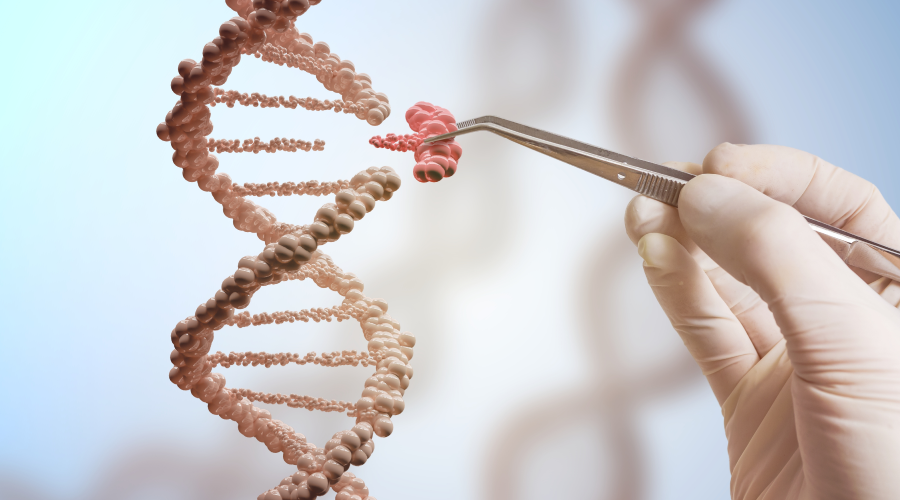Blog - How and why does a genetic test determine the risk of oncology?
Cancer and other malignant neoplasms come the second place in the general structure of mortality (30% of all deaths), as preceded in frequency only by cardiovascular diseases. Effective treatment is possible only in the earliest stages of the pathology.
Nevertheless, numerous studies do pay off - scientists managed to prove a direct link between oncological diseases and a hereditary predisposition to them since DNA is responsible for any changes in the body. The tendency to malignancies can be identified by taking a comprehensive genetic test. It will allow preventing the consequences, which are very difficult to fight.

Why is cancer a genetic disease?
Genes reside in every living cell and are carriers of inherited genetic information. They supervise most of the processes in the human body, and also perform a protective function, preventing mutations, that cause cancer.
Each protein encoded by a specific gene is responsible for a specific process in the body: some contribute to the active growth and division of cells, others are intended protection against infections. When the structure of the gene is damaged, changes in the functioning of cells occur - some of them begin to divide without any control.
That is how a neoplasm appears, which initially does not reflect a threat to the body. If the tumor begins to develop more actively, using vital resources, then it turns into a malignant one. At the same time, the human body even contributes to the growth of cancer cells, providing them with good nutrition. Scientists came to the conclusion that the body perceives the tumor as a wound that does not heal - which is why it mobilizes all its defenses to stimulate the process of regeneration.
Understanding the mechanism of the pathological process was supposed to bring scientists closer to solving the problem, but is not as simple. The truth is that the “instruction” on how exactly the human body should respond to a specific situation is embedded in DNA. Oncology genes mutations can cause uncontrolled cell division, which then do not come to a stage of natural death. This gives every reason for including cancer to genetic diseases since gene defects can be inherited.

Advanced opportunities in matching cancer propensity
There are many factors that can damage human genetic material. However, knowing which genes are responsible for DNA coding, it is possible to determine a predisposition to oncology. If you really care about your health or by any criteria you are at risk for this disease, you should consult a geneticist.
The most credible approach to early cancer propensity matching is genetic testing. This is the analysis that provides objective information about whether a person has a tends to tumoral pathologies. The key is that during genetic consultation, the expert collects detailed information about family medical history, which is necessary for a more precise interpretation of the data obtained during the examination.
It is important to determine risk factors for cancer development comprehensively: explore if there were cases of the disease in relatives, take into account the age and gender of the patient, and also analyze the results of the genetic test. Such an approach to matching propensity for cancer will help to assess the likelihood of developing cancer for each member of the family.
How will DNA research help in oncology prevention?
Almost every type of cancer has hereditary forms, that is why it is so important that a genetic factor is taken into. The list of the most common diseases, caused by defects in oncology genes can comprise the following types of cancer:
- breast cancer;
- ovarian cancer;
- gastroesophageal cancer;
- lung cancer;
- kidney cancer;
- thyroid cancer;
- prostate cancer;
- leukemia;
- colorectal cancer;
- skin cancer;
- pancreatic cancer;
If there are no defects in the genetic material, or to be more precise - in the set of genes, that are responsible for oncology predisposition, then the likelihood of developing the disease is kept to a minimum.
Gene defects are hereditary, so the probability of detecting cancer in descendants is really high if one of the relatives had cancer. However, mutations are resulting from numerous changes in the human body throughout his life. They are not congenital, but the tendency to their occurrence is also associated with other genes. Mutations in the suppressor genes, which are responsible for coding of protein which prevents tumor cell transformation, lead to the growth of pathological neoplasm.
New knowledge and the results of numerous research help to develop innovative approaches to addressing one of the most common fatal diseases. Year-on-year, methods for analyzing the mutations of genes involved in the formation of neoplasms are being improved, providing us with a new vision of the nature of malignant tumors. Doing a comprehensive genetic test will help to develop an individual disease prevention scheme, and awareness of such a predisposition will make it possible to impact length and quality of life for more than a generation.



 Call
Call